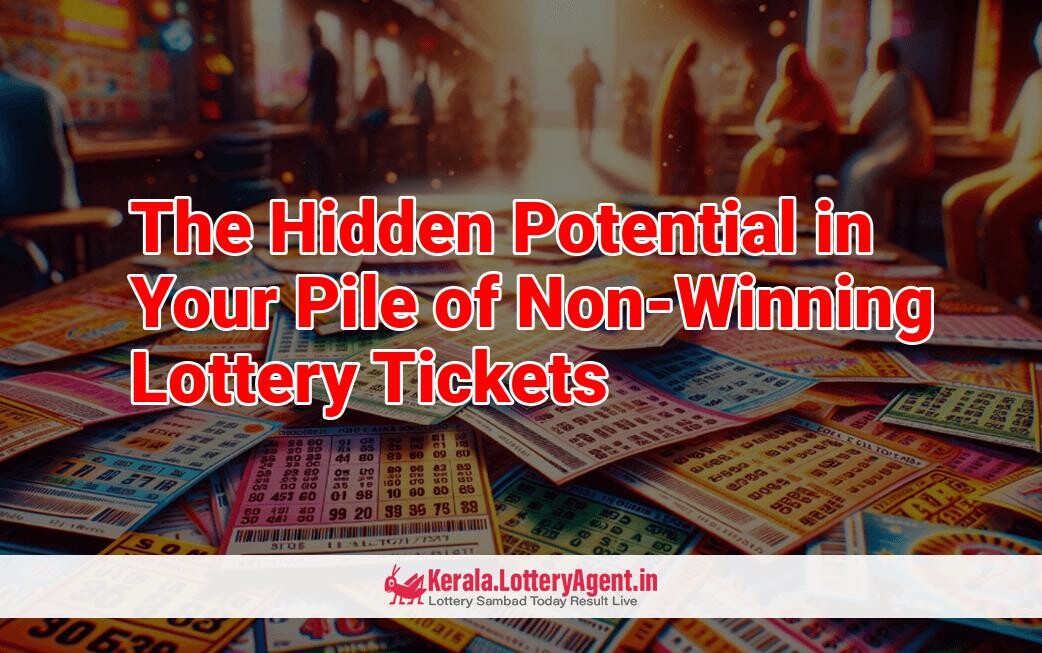
Winning the lottery is a dream that tantalizes countless individuals worldwide. Nevertheless, the harsh reality remains—securing that sought-after jackpot is a matter of extreme luck, as players battle almost insurmountable odds. Despite millions throwing their hat in the ring, victories are sparse and elusive. Hence, it is commonplace to find oneself in possession of old lottery tickets, a paper trail of unfruitful gambles.
The instinct might be to dismiss these tickets as worthless and consign them to the waste bin without a second thought. However, it may be premature to deem these tickets useless. Indeed, there exist several avenues through which these relics of hope may yet hold value—some of which may come as a surprise.
Consider the ticket itself: it’s not only a random selection of numbers but also the official proof of your purchase and your rightful claim to any prize it might secure. Should a fortunate twist of fate occur, and you discover your ticket matches winning numbers, this proof of ownership becomes indispensable for claiming victory. It’s customary to endorse your ticket with a signature, take a commemorative snapshot, and stow it in a secure location until the drawing concludes.
It is not unheard of for winnings to go unclaimed, as Fox Business reports—a staggering $2 billion in winnings waiting for non-existent claimants. The importance of a meticulous recheck, under a calm state of mind, cannot be overstressed. You may find that your initial, hasty review overlooked the fortunate numbers.
Furthermore, there’s no cause for concern about overseeing winning numbers when playing through online lottery platforms such as theLotter, LottoAgent, Lottofy, and WinTrillions. These services dutifully deposit winnings directly into your online accounts, mitigating the risk of lost opportunities due to oversight.
A particularly intriguing feature with some lotteries is the offering of second-chance draws. These grant participants another shot at winning different prizes, regardless of their initial draw outcome. Before relegating your tickets to the trash, ensure that there are no pending second chance draws that could turn the tides in your favor.
Were you to find yourself a winner eventually, old lottery tickets could come in handy for tax purposes. To explain the concept of ‘tax offsetting’ with a tangible example: imagine winning a $5,000 Powerball prize in Arizona. After tax deductions, your take-home might only be $2,165. However, if you’ve spent $500 on tickets leading to your win, you could potentially deduct this from your taxable winnings, leaving you with a marginally higher aftermath of $2,445. Such old tickets serve as the necessary proof when filing the IRS Form W-2G.
Aside from the financial pragmatism, old lottery tickets can acquire sentimental or aesthetic value. Ticket collectors—known as ‘lotologists’—find joy in accumulating these symbols of chance, which can serve as keepsakes or even elements of home decor. Moreover, second chance draws are prevalent across US states and international lotteries alike, from second chance lotteries in American states to the UK Millionaire Maker game attached to each Euromillions ticket in the United Kingdom, providing extra chances for wins under variant rules and opportunities.
One must not overlook the ecological responsibility that comes with disposing of old tickets. Paper-based tickets can easily find new life in the recycling bin, thus contributing to a reduction in gambling-associated waste.
In the realms of creativity, old tickets can be transformed into art. Inspiration can be gleaned from the likes of Adam Eckstrom and Lauren Was, whose innovative use of lottery tickets in collage art resonates with ingenuity and aesthetic appeal. For the entrepreneurial spirit, unneeded tickets might also represent a small but potential source of revenue, with collectors paying a pretty penny for such items on auction websites like eBay.
To conclude, while the primary aspiration of lottery participation is that elusive win, the potential uses for non-winning tickets once the draw is concluded are extensive and varied. From keeping them as collector’s items, possibly reaping the benefits from second chance draws, aiding in tax deductions, stimulating creativity, or even converting them into a small sum of money—these forgotten slips of paper may still hold various forms of value, long after the jackpot dreams fade.











